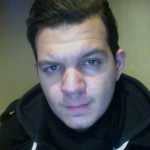NASA launched the Transiting Exoplanet Survey Satellite, or TESS, just after 6:50 p.m. ET aboard a SpaceX Falcon 9 rocket from the Cape Canaveral Air Force Station in Florida.
Dubbed the newest planet hunter, TESS will search for potentially thousands of new exoplanets. Exoplanets are planets that orbit a star located outside the solar system.
Through the use of four wide-field cameras positioned on the satellite, TESS will scan over 200,000 stars in pursuit of evidence of planets by snapping pictures of portions of the sky over the course of 27 days at a time.
The goal will be to spot a winking in the stars as proof of “transit,” which is the moment when a planet passes the star, creating a dip in brightness. Lisa Kaltenegger, director of the Carl Sagan Institute at Cornell, hopes that the journey taken by TESS will prove that there are planets that could potentially support life. "My passion is trying to figure out if we are alone in the universe, and what we need for that is planets where we can explore the air, where we get enough light to look at the atmosphere of those planets. [That means] we need planets that are close by, and that’s what TESS affords us,” Kaltenegger toldPopular Science.
For a crash course on TESS and its mission, check out the above video.

